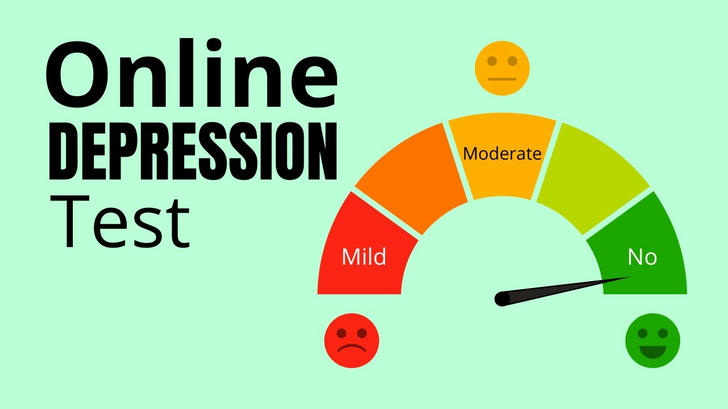Feeling low? 10 questions to tell you if you are really depressed
In today’s fast-paced world, many struggle silently with depression—a complex condition that goes beyond simple sadness. This article offers a self-assessment guide with key questions to help you reflect on your emotional state, while learning about different types of depression and the importance of proper self-assessment.

What is a Depression Test?
A depression test is a screening tool designed to assess an individual’s mental health and identify potential signs of depression. These tests typically consist of a series of questions that evaluate mood, behavior, and thought patterns. While not a definitive diagnosis, depression tests can provide valuable insights and help determine if further professional evaluation is necessary.
Why are Depression Tests Important?
Depression tests play a vital role in mental health awareness and early intervention. They offer a quick and accessible way for individuals to gauge their emotional well-being and identify potential concerns. By providing a structured assessment, these tests can help people recognize symptoms they might otherwise overlook or dismiss, prompting them to seek professional help when needed.
How Do Depression Tests Work?
Depression tests usually involve a questionnaire that covers various aspects of mental and emotional health. The questions are designed to assess the frequency and severity of common depression symptoms, such as persistent sadness, loss of interest in activities, changes in sleep patterns, and difficulty concentrating. Responses are typically scored to determine the likelihood and potential severity of depression.
Quick and Easy Self-Assessment Tools
If you're feeling down or concerned about your mental health, consider taking a quick online depression test. These tools, such as the 2-minute online depression test or the 10-question quiz, are designed to help you assess the presence and severity of depressive symptoms in just a few minutes. These tests are not only convenient but also provide immediate feedback to help you understand your mood and emotional state. Whether you're looking for a simple self-check or a more detailed assessment, these tools can be a helpful starting point for understanding your mental health.
Common Questions in Depression Tests
Depression tests often include questions that address key indicators of depressive symptoms. Here are some examples of the types of questions you might encounter:
- How often do you feel down, depressed, or hopeless?
- Have you lost interest or pleasure in activities you once enjoyed?
- Do you have trouble falling asleep, staying asleep, or sleeping too much?
- How often do you feel tired or have little energy?
- Have you experienced changes in your appetite or weight?
- Do you have difficulty concentrating or making decisions?
- Do you feel worthless or guilty?
- Have you had thoughts of self-harm or suicide?
- How much do these symptoms interfere with your daily life?
- Have you noticed changes in your physical activity levels?
These questions help assess the presence and severity of depressive symptoms, providing a comprehensive overview of an individual’s mental state.
What Happens After Taking a Depression Test?
After completing a depression test, you’ll typically receive a score or assessment based on your responses. This result is not a definitive diagnosis but rather an indication of whether you may be experiencing symptoms of depression. Depending on the outcome, you might be advised to:
✅Monitor your mood and retake the test after a specified period
🔻Discuss your results with a healthcare professional
✅Seek immediate help if the test indicates severe symptoms or suicidal thoughts
✅Explore self-help strategies for managing mild symptoms
It’s important to remember that a depression test is a starting point for understanding your mental health, not a substitute for professional medical advice.
How Accurate are Depression Tests?
Depression tests are valuable screening tools, but their accuracy can vary. Factors such as the specific test used, the individual’s honesty in answering questions, and the presence of other mental health conditions can all influence the results. While these tests can be helpful in identifying potential depression, they should not be considered definitive diagnoses.
Types of Depression Tests
| Test Type | Format | Typical Duration | Key Features |
|---|---|---|---|
| PHQ-9 | 9-question survey | 5-10 minutes | Widely used in primary care settings |
| Beck Depression Inventory | 21-question assessment | 10-15 minutes | Assesses severity of depression |
| Hamilton Depression Rating Scale | Clinician-administered interview | 20-30 minutes | Used to monitor treatment progress |
| Zung Self-Rating Depression Scale | 20-item questionnaire | 10 minutes | Self-administered scale for depression symptoms |
Conclusion
Depression tests serve as valuable tools for initial mental health screening. They can help individuals recognize potential signs of depression and guide them towards seeking appropriate help. However, it’s crucial to remember that these tests are not substitutes for professional medical advice. If you’re concerned about your mental health, always consult with a qualified healthcare provider for a comprehensive evaluation and personalized treatment plan.
This article is for informational purposes only and should not be considered medical advice. Please consult a qualified healthcare professional for personalized guidance and treatment.
The shared information of this article is up-to-date as of the publishing date. For more up-to-date information, please conduct your own research.
Depression Test Click here to take the test:
